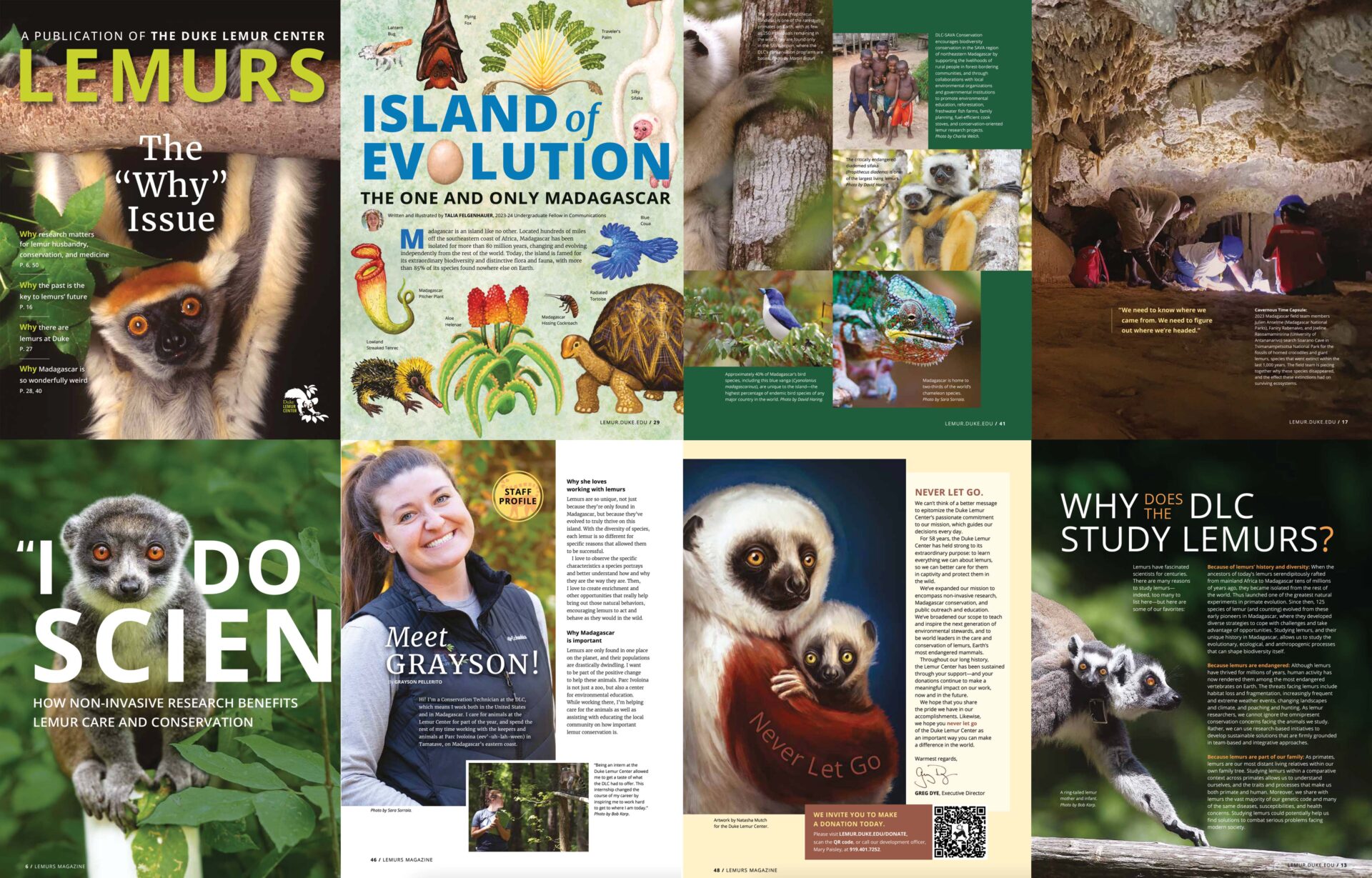Lemurs have fascinated scientists for centuries. There are many reasons to study lemurs—indeed, too many to list here—but here are some of our favorites:
Because of lemurs’ history and diversity: When the ancestors of today’s lemurs serendipitously rafted from mainland Africa to Madagascar some 50 million years ago, they became isolated from the rest of the world. Thus, launched one of the greatest natural experiments in primate evolution. Since then, 125 species of lemur (and counting) evolved from these early pioneers in Madagascar, where they developed diverse strategies to cope with challenge and take advantage of opportunity. Studying lemurs, and their unique history in Madagascar, allows us to study the evolutionary, ecological, and anthropogenic processes that can shape biodiversity itself.
Because lemurs are endangered: Although lemurs have thrived for tens of millions of years, human activity has now rendered them among the most endangered vertebrates on Earth. The threats facing lemurs include habitat loss and fragmentation, increasingly frequent and extreme weather events, changing landscapes and climate, poaching and hunting. As lemur researchers, we cannot ignore the omnipresent conservation concerns facing the animals we study. Rather, we can use research-based initiatives to develop sustainable solutions that are firmly grounded in team-based and integrative approaches.
Because lemurs are part of our family: As primates, lemurs are our most distant relatives within our own family tree. Studying lemurs within a comparative context across primates allows us to understand ourselves, and the traits and processes that make us both primate and human. Moreover, we share with lemurs the vast majority of our genetic code and many of the same diseases, susceptibilities, and health concerns: Studying lemurs could potentially help us find solutions to combat serious problems facing modern society.
Learn More
Of all the animals on Earth, why are we so passionate about lemurs? Of all the islands in the ocean, why is Madagascar remarkable—and so worthy of our conservation attention?
The “Why” issue of the our official magazine addresses the core mission of the DLC: Why do we do what we do? Featuring articles from DLC staff, interns, and collaborators and gorgeous images from our volunteer and staff photographers, this issue is infused with the curiosity, beauty, and tenacity that define the DLC. The entire issue, as well as past issues, can be read free online.


